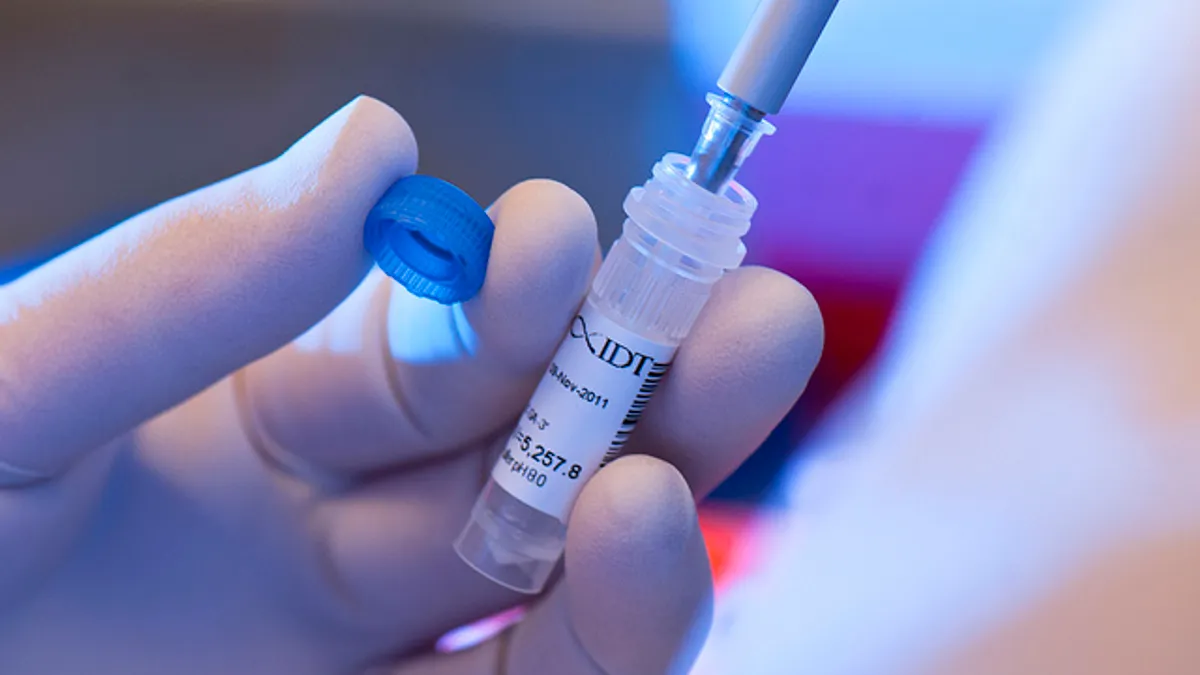Dive Brief:
- The very size and complexity that allows pharmaceutical conglomerates to research, produce and distribute drugs is proving to be among the greatest challenges to accelerating the supply chain, PharmExec.com reported last week.
- Consumers are demanding personalized care and convenient delivery, but pharmaceutical companies may find it difficult to speed processes and better target production without integrated systems and data. Yet, a more integrated chain also brings the challenge of cybersecurity, an especially sensitive topic in healthcare.
- Despite the challenges, many companies are upgrading their chains given recent product serialization regulations and market demands. To do so successfully, however, companies must align support is unified across departments, facilities and corporate divisions.
Dive Insight:
Supply chain integrations are complex regardless of the industry, but the pharmaceutical supply chain's challenges are especially daunting.
As PharmExec suggests, the industry's main players are large, multinational conglomerates with a hand in every step of the process, from drug development and clinical trials, to procurement of active pharmaceutical ingredients and distribution of products from manufacturing facilities to warehouses across multiple borders. Add to all of that the temperature- and pressure-sensitive nature of products that could affect lives, and it becomes clear managing a cold chain is no easy feat.
Given the complexity, it would seem supply chain management would be a priority, but all accounts suggest the industry has been slow to modernize its processes.
A recent study revealed drug shortages remain commonplace throughout the chain, as companies fail to maintain backup supplies or mitigate supply risk with diverse procurement, forcing the healthcare industry to pay roughly $230 million to purchase needed supplies on-demand. Meanwhile, Merck & Co. only recently began its supply chain integration process to bring its four planning hubs, 80 distribution centers and 20 external sites into one, common technology system.
However, pharmaceutical chains are beginning to see the value in integration, or perhaps the need to modernize.
For one, recent serialization regulations are forcing companies to digitally catalog all products in order to trace them throughout the chain. Such initiatives will allow companies to spot counterfeit drugs, tampering and cold chain failures down to a specific shipment. Supply waste will decrease with more accurate records and decreased spoilage.
The benefits of an integrated supply chain do not end at visibility, however. Increased data allows for improved demand planning and forecasts, as well as a better understanding of the market. As personalized medicine becomes more popular and profitable, predictive analytics using consumer data will too become necessary. As a result, pharmaceutical companies can both increase output and decrease waste with a single initiative.
The nature of supply chain management has changed; so too must the professional toolkit. A look at the retail, automotive and other advanced industries show technological integration is the second step in the long process of modernizing the value chain. First, leaders and talent must be acquired to ensure the transition is successful.














